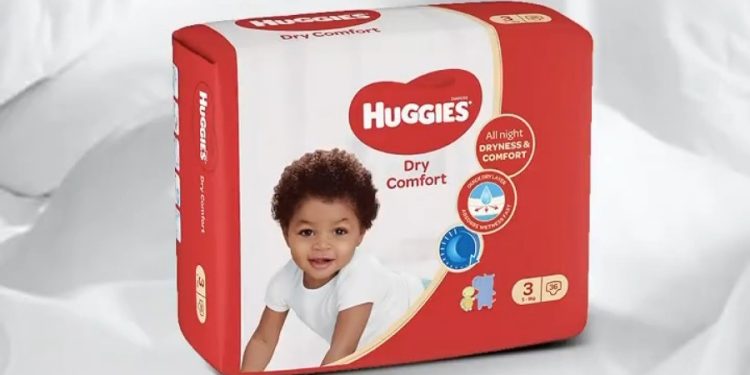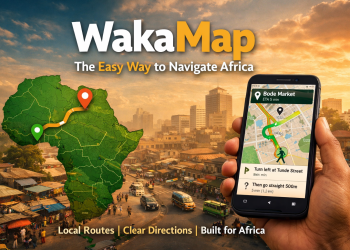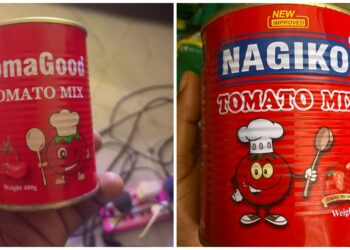The manufacturer of Huggies diapers and sanitary pads, Kimberly Clark, is contemplating the closure of its production facility in Ikorodu, Nigeria. This decision comes just two years after the company made a significant investment of $100 million in the country.
The plant’s output has been on a downward trend since late 2023, as reported by sources familiar with the situation, and this trend has continued into 2024. The decrease in production is largely due to the challenging economic conditions that the country is currently experiencing.
In the year 2022, the corporation commenced operations once again by establishing a production facility worth $100 million in Ikorodu, Lagos state. This move came after a thorough evaluation of its business, which led to the temporary shutdown of operations in 2019.
READ MORE: Dr Arikana, Enabulele, Others Team Up For Ubuntu Awakening Summit
Kimberly-Clark began operations in Nigeria in 2012 but stopped due to unfavorable economic conditions after five years in 2019 to later restart in 2021.
The corporation manufactures Huggies diapers, sanitary pads, Kotex, and various other hygiene and personal care items. KC is a publicly traded multinational company on the New York Stock Exchange, with most of its stocks owned by institutional investors such as Blackrock Inc., Vanguard Group, Morgan Stanley, and others.
The company has reportedly faced challenges since late 2022, including high energy costs, raw material expenses, and reduced customer demand, as stated by an anonymous source. These difficulties have been attributed to the current economic conditions.
This has led to a decrease in workforce and a reduction in production hours, now operating only from Monday to Thursday.
The organization is currently allocating approximately N100 million towards power generation every month, in addition to maintenance expenses. Furthermore, its monthly operational fixed costs have increased to over N500 million.
He said;
“Our first two years were fantastic in terms of sales growth and market shares within the diaper industry. Fast forward into late 2022 and 2023 was really bad years for the coy due to economic situation.”
“Running cost is extremely on the high side. Our fixed spent every month is above N500 million and we spent about N100 million on just gas consumption for powering the gas engine aside maintenance. The company has two assets and for last year, these assets didn’t run for like 90 days in 365 days.”
“Earlier this year, the coy had to downsize to 2 shifts from 4 shifts. We run 24 hours 7 days and 365 days before but currently, we don’t run on Friday, Saturday, and Sunday anymore because of the economic situation. There is already an embargo on external recruitment. The company is looking for ways to reduce cost since it is not making a profit”.
Moreover, the source highlighted that the elevated production expenses are a result of the escalated costs of raw materials, primarily due to their importation.
Upon commencing operations approximately three years ago, the company allocated funds for its activities, foreseeing that these funds would be sufficient for five years until revenue from Nigeria could support the operations.
Another source familiar with the situation revealed to Nairametrics that the company is not expected to resort to importing, unlike its competitor Procter and Gamble, indicating that it will not engage in official transactions within the country.
Aside From The Manufacturers of Huggies Diaper, Other Companies That Have Left Nigeria
The reasons given for the intended cessation of Kimberly-Clark’s operations in Nigeria are comparable to those of other manufacturers who have withdrawn from the country in recent years.
The reasons are High production costs, currency depreciation affecting the import of raw materials, and weak purchasing power of the populace.
In 2023, Procter and Gamble (P&G), a personal care company headquartered in the United States, ceased its operations in Nigeria last year. This decision came after the company had made a substantial investment of approximately $300 million, marking the largest non-oil investment by the US. company in Nigeria. P&G had established a production facility in Ibadan, which was ultimately closed down.
Similarly, PZ Cussons announced recently that it is assessing strategic alternatives for its Africa operations, with a focus on Nigeria as the largest market, to enhance shareholder value. Additionally, the company has resumed the sale of assets in Nigeria following a pause caused by foreign exchange liquidity challenges.
According to Statista, the Nigerian baby diaper industry is valued at approximately $920 million, and it is projected to experience a Compound Annual Growth Rate (CAGR) of around 11% from 2024 to 2028. Key players in this industry include P&G’s Pampers, Molfix, and Kimberly-Clark’s Huggies. However, it is worth noting that this industry is highly competitive, with approximately 15 brands vying for market dominance.
What The Planned Closure Of The Baby’s Diaper Industry Means
The scheduled shutdown of operations at Kimberly-Clark’s plant in Nigeria represents a significant setback to the government’s efforts to encourage foreign direct investment in the country and reflects the obstacles encountered by businesses in the tangible economy.
Furthermore, the closure of operations means that two of the three leaders in the diaper and personal care industry in Nigeria (P&G and Kimberly-Clark) have ended production in the last year.
Similar to GSK, P&G also shifted towards an import-focused business strategy. If KC follows suit, it may worsen the prices of diapers and sanitary products for infants and households due to the substantial devaluation of the Naira. This could further escalate the country’s reliance on imports, contradicting the current push for increased local production.










